Also by Edward C. Mendler
Massachusetts Conveyancers Handbook, Third Edition, Thomson-West, 1984.
Massachusetts Conveyancers Handbook, Fourth Edition, Thomson-West, 2008
Evolution for Creationists A Brief Review of the Science of Evolution for Those Who Might Be Creationists, iUniverse, Inc., 2007
Policies For A President A Manifesto for 2008 and Beyond, Xlibris Corporation, 2007
ABC Anthony Bennett Champion The Whole Story About an Extraordinary Man of the Twenty-First Century and his many Friends, Escapades and Achievements, Author House, 2014
False Truths
The Error of Relying on Authority
Edward C. Mendler
Hamilton Books
A member of
Rowman & Littlefield
Lanham Boulder New York Toronto Plymouth, UK
Copyright 2014 by Hamilton Books
4501 Forbes Boulevard, Suite 200, Lanham, Maryland 20706
Hamilton Books Aquisitions Department (301) 459-3366
10 Thornbury Road, Plymouth PL6 7PP, United Kingdom
All rights reserved
Printed in the United States of America
British Library Cataloguing in Publication Information Available
Library of Congress Control Number: 2013954752
ISBN: 978-0-7618-6299-4 (paperback : alk. paper)ISBN: 978-0-7618-6300-7 (electronic)
 TM The paper used in this publication meets the minimum requirements of American National Standard for Information Sciences Permanence of Paper for Printed Library Materials, ANSI/NISO Z39.48-1992.
TM The paper used in this publication meets the minimum requirements of American National Standard for Information Sciences Permanence of Paper for Printed Library Materials, ANSI/NISO Z39.48-1992.
PREMISES
It is the nature, and the advantage, of strong people that they can bring out the crucial questions and form a clear opinion about them. The weak always have to decide between alternatives that are not their own.
Dietrich Bonhoeffer (as quoted on the web)
Ignorance more frequently begets confidence than does knowledge: it is those who know little, not those who know much, who so positively assert that this or that problem will never be solved by science.
Charles Darwin (from the introduction to The Descent of Man, 1871)
The important thing is not to stop questioning; curiosity has its own reason for existing. One cannot help but be in awe when he contemplates the mysteries of eternity, of life, of the marvelous structure of reality. It is enough if one tries merely to comprehend a little of this mystery every day. Never lose a holy curiosity.
Albert Einstein (from a statement to William Miller, as quoted in Life magazine, May 2, 1955)
Our memories are prejudiced, in the full sense of the term, by our past history and beliefs.
Antonio Damasio (from Self Comes to Mind, page 133)
List of Illustrations
3.1 Pope John Paul II, 24
3.2 John Polkinghorne, 26
6.1 Robert Millikan, Georges Lematre, Albert Einstein, 55
6.2 Attendees at the Solvay Conference in 1927, 68
7.1 Stephen Jay Gould, 78
7.2 Christian deDuve, 85
8.1 Drawing of a Neuron, 108
8.2 Drawing of a Synapse, 108
8.3 Antonio Damasio, 111
Preface
The desire to know and to understand is the essence of mind. Absent such desire, consciousness is a mere wisp of the senses. That is a conclusion I have reached over many years, and it is one of the conclusions that I will try to support in this book. While knowing and understanding are in common parlance considered to be cognitive functions of the brain, desire is categorized as an emotion. The inseparability of cognition and emotion is a salient insight of many prominent neuroscientists of today, and I will herein offer my limited understanding of their findings.
Among the ancient Greeks such a desire came to be known as philosophia, or the love of wisdom, associated with a thoughtful quest for knowledge and understanding of the unknown, differentiated from the practice of propounding or teaching asserted knowledge or truths, known as sophism. Now there is certainly no impetus to deny the value of teaching, but when the goal puts indoctrination ahead of inquiry, it becomes clear why sophistry has acquired a bad repute and philosophy is commonly regarded as benign. Unfortunately, however, the distinction is often lacking. There are many tenets and beliefs propounded today as being based upon sound philosophy, both ancient and recent, which, when analyzed, can be shown to be as specious and deceptive as the arguments of any dedicated sophist. That is another of my long held conclusions, which I will repeatedly assert and try to sustain in this work.
The subject matters of philosophy traditionally include mind and reason, perception and thought, existence and reality, materiality and transcendence, all of which have led to concepts of divinity, the nature of human beings, and their relationships to the divine and to each other. The philosophers are supposed to approach all questions about such subjects without bias, without assurance of finding an answer, and with the most humble consideration of their own resources of reasoning, investigation and testing, and with the fairest and most efficient methods of epistemology available to them. On that subject I assert no conclusion, but accept the honesty and good will of practically everyone who is imbued with a desire to know and to understand. Yet that too is a mixed bag, and questions must often be posed about both the methodology and the goals of many of those who offer conclusions from the analyses of their thoughts.
That is to say, with the passage of all my years I find myself obliged to express some doubts. In the first place, those who are known today as great Philosophers were generally not humble: they thought they knew what they were talking about, that they were right, and they left plenty of written works so asserting. In the second place, what passed as epistemology for thousands of years was devoid of understanding of how we come to know what we think we know, and particularly lacking in awareness of the effect of biology on cognition. Many philosophers of old (and some today) are convinced that reason is a certain route to truth, or at least to what they deem to be the truth. On that basis I do feel entitled to scoff at the conclusions of many of the philosophers of the world, and at the methods of reasoning they employed.
You may readily observe that I am not qualified so to scoff, and that is of course true. I have not established myself as a philosopher, and do not even claim to be widely conversant with the writings of philosophers. But what is it that qualified anyone to be regarded as a philosopher; to have his conclusions accepted as representing an approach to truth? The answer in general is the articulation of a line of reasoning that seems to lead to a set of conclusions. Often in the past such articulation was in multiple volumes. That volubility seems to be perpetuated today by the demands on scholars to publish or perish. Nevertheless, I will rely on this one volume to express my conclusions to you. I do not pretend to be a scholar. And in the sense of having devoted my lifes work to studying and expounding upon philosophical subjects, I am certainly not a philosopher. But arent we all philosophers? Dont we all desire to know and to understand?
Besides possessing that desire rather deeply, I do assert that I have available to me a vastly greater body of information than was available to any of the great philosophers of the past. They were often referred to as natural philosophers because they related their conclusions about divinity, human nature, values, and society, to nature, that is, what they perceived around themselves. They coupled such conclusions with assertions about the physical world. These assertions were often based on the observations made by those philosophers themselves, Aristotle being a particularly salient example. But the observations of nature by Aristotle and other natural philosophers of old were exceedingly superficial, beset with false comparisons and mere surmise, and usually quite wrong. The conclusions of the ancients as to material things have been shown over and over by more carefully conducted scientific investigations to be in the main thoroughly erroneous.

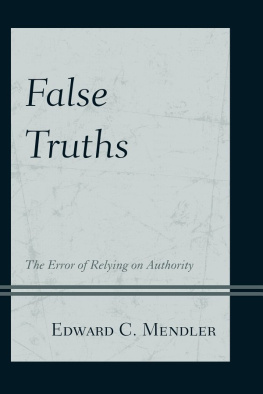
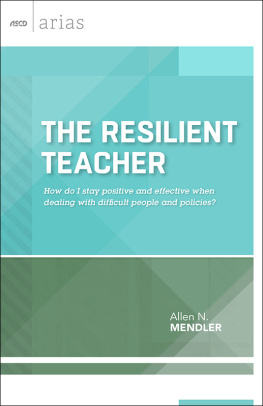
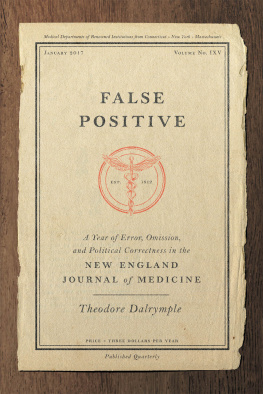



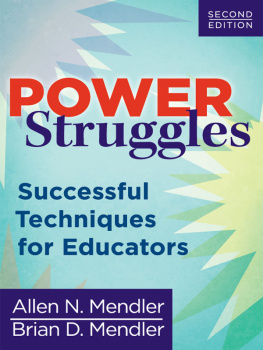
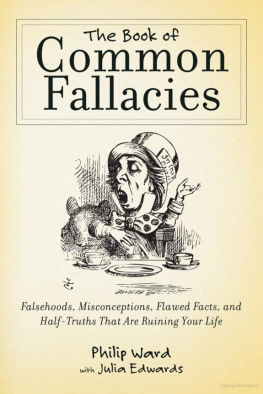
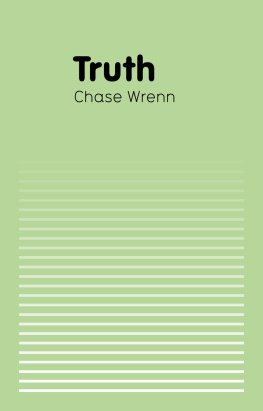
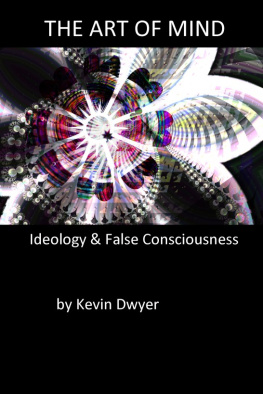
 TM The paper used in this publication meets the minimum requirements of American National Standard for Information Sciences Permanence of Paper for Printed Library Materials, ANSI/NISO Z39.48-1992.
TM The paper used in this publication meets the minimum requirements of American National Standard for Information Sciences Permanence of Paper for Printed Library Materials, ANSI/NISO Z39.48-1992.